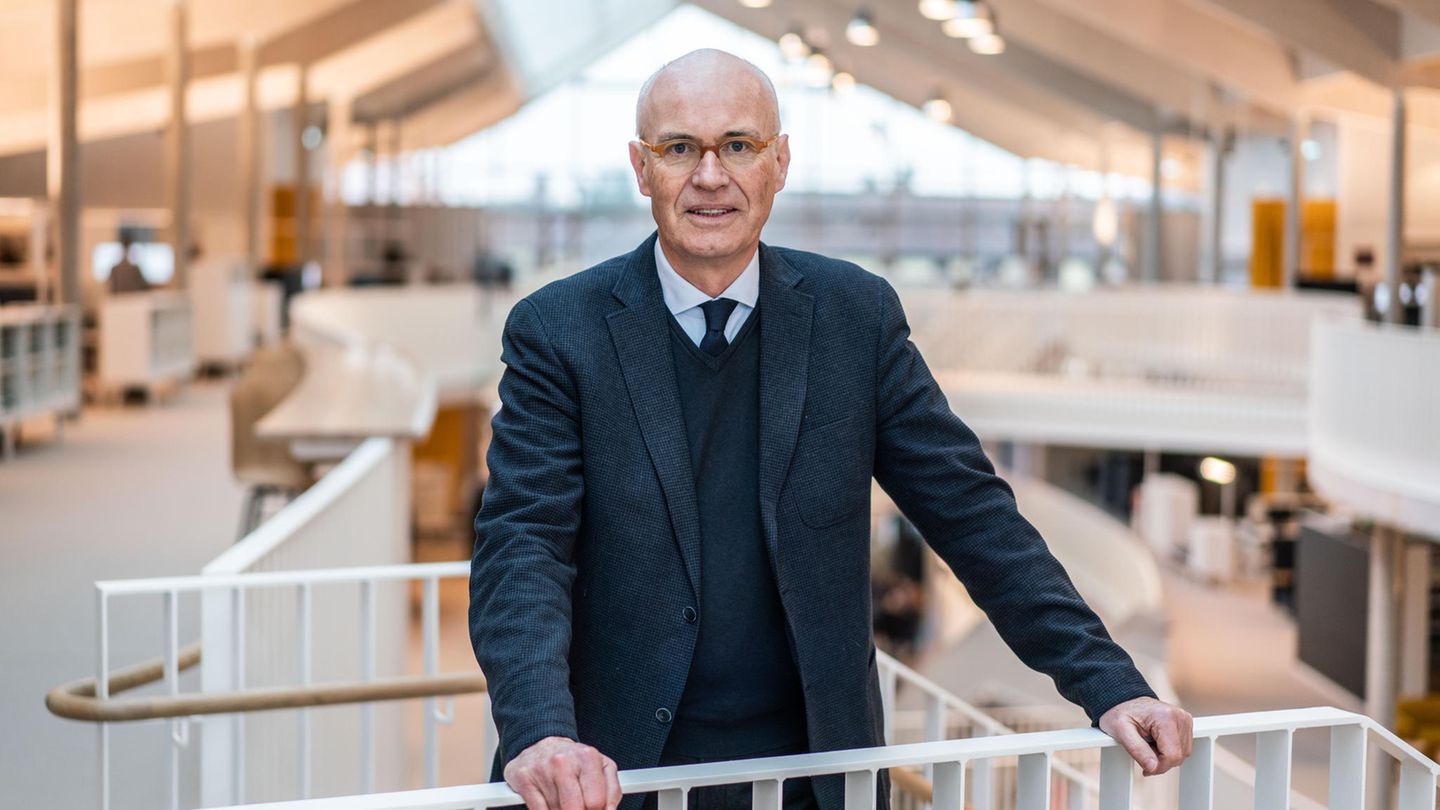Podcast

The organic supermarket chain Alnatura is a pioneer in the organic sector – the founder Götz Rehn has created a model company. Against the backdrop of the climate summit in Glasgow, he has a powerful message: All companies must change course.
Götz Rehn is an entrepreneur who has very different messages than other companies and founders, and has been for decades. He puts meaning before profit, people are the focus, less is more. He’s been calling for years “Rethinking the economy” and redirect. At the same time he showed with Alnatura that one can be successful with such principles of sustainability.
In the organic segment, Rehn has built a hidden champion that has recently grown by 20 percent and has cracked the billion in sales. Alnatura has 142 stores in 67 cities, 1,300 of its own products, plus trading partners in 14 countries and 12,800 branches.
He is cautious about the negotiations so far at the COP26 climate summit in Glasgow. The results “keep within limits”, he said . “We just make the big mistake of overloading the earth.” His message: more speed. He sees an often underestimated lever in agriculture. “Today, 50 percent of the earth’s bio-capacities are only required for nutrition”said Rehn. Much of it falls on the “excessive meat consumption”. “I am not the friend of the fact that we no longer eat meat, it is always a question of measure”said Rehn. More ecological agriculture would build up humus, which in turn binds CO2. “And you have clean groundwater.” So far, however, too few farmers have been converting, in 2019 it was 90,000 hectares in Germany.
Another economy
Rehn is not interested in profit when it comes to growth; 1.5 to two percent is sufficient. “We prefer to pass the money on to customers at affordable prices.” Alnatura had repeatedly cut prices in recent years and pays all employees 13 euros. Now, however, Rehn also expects price increases due to the increased transport and raw material costs.
When Rehn founded Alnatura in 1984, many thought he was an idealist. “When I presented the ideas, everyone said: this will never work”the entrepreneur recalls. He has proven otherwise. Still, Rehn sometimes feels like “a small green ant between the cobblestones”who must constantly watch out, not of “the big animals” to be crushed. Because the German food market is “tough and competitive”.
For him it be “The task of business to promote human development”. He described himself on the podcast as “Business doctor”that shows that other economies are possible. Not success, but people are the measure of all things.
A few years ago, Alnatura built a new headquarters in Darmstadt on a former US military site, which was awarded the German Sustainability Prize. The walls of the campus are made of rammed earth with geothermal wall heating, the fresh air is sucked in from the adjacent forest, the water comes from a 1000 cubic meter rainwater cistern. There are also herb gardens, a bicycle parking garage, charging points for e-bikes and cars, a Waldorf kindergarten – and an open-air theater where the apprentices play theater.
Listen in
- How anthroposophy influenced Rehn’s worldview
- What role dm founder Götz Werner played in the early days of Alnatura
- All details about the Alnatura campus
You can find all episodes directly at , or or via .
Source From: Stern
Jane Stock is a technology author, who has written for 24 Hours World. She writes about the latest in technology news and trends, and is always on the lookout for new and innovative ways to improve his audience’s experience.



